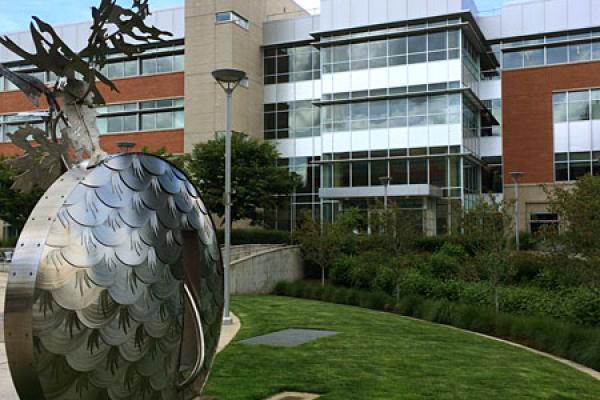Stormwater management provides water quality protection for the community by implementing programs to reduce pollution in our rivers, streams and wetlands caused by urban stormwater runoff.
Stormwater runoff is the most significant source of water pollution in our state. It washes pollutants into storm drains and drainage ditches, carrying silt, oil, chemicals, trash and pesticides to the nearest creek, stream or wetland. The polluted runoff can harm fish, aquatic life, and threaten our drinking water.
Properly managing stormwater is critical to protect our rivers, streams, creeks and wetlands. The Stormwater Management Plan outlines how our teams follow procedures for runoff at construction sites, spill containment, erosion prevention, site inspections, reporting, etc.
Report dumping and spills
Report sewer or stormwater problems or concerns, such as oil leaks, a sewer spill or illegal dumping into a storm drain.
Municipal Separate Storm Sewer System (MS4) Permit
The 2022 MS4 Permit Shared Stormwater Management Program Document describes the stormwater management program of four of 12 co-permittees of the municipal separate storm sewer system permit (MS4 Permit). Clackamas County, Water Environment Services, the City of Happy Valley, and the City of Rivergrove co-report on their educational and operational efforts.
The shared stormwater management plan document acts as a resource for the public to learn about the participant's efforts to reduce pollutants discharged by the storm sewer systems, an informative guide for staff and a compliance measure for the MS4 Permit.
MS4 Permit Stormwater Management Plan
Clackamas County's Municipal Separate Storm Sewer System (MS4) Permit requires an annual report be submitted to the Department of Environmental Quality (DEQ) between July 1 of the previous year and June 30 of the same year to prove the objectives stated in the stormwater management plan have been accomplished.
- 2010 CCDTD MS4 NPDES Permit Stormwater Management Plan
- 2021 Municipal Separate Storm Sewer Systems (MS4) Phase 1 Permit
Total Maximum Daily Load (TMDL)
Stormwater runoff is a contributor to water pollution, particularly in developing and urbanized areas. To meet state water quality standards, the Department of Environmental Quality (DEQ) calculates the total maximum daily load (TMDLs) to measure pollutants in water bodies associated with stormwater sources, such as pathogens, nutrients, sediments, and metals.
This is a calculation of the maximum amount of a pollutant that a waterbody can receive and still meet water quality standards, and an allocation of that amount to the pollutants sources.
Watershed Jurisdictional Areas Major Watersheds of Clackamas County
Area implementation plans to meet water quality standards
- Willamette River
- Tualatin River
- Sandy River
Training
Construction site erosion control and pollution prevention training opportunities are periodically updated. Please check back for future training information.
Provide feedback
Each fall, we offer the opportunity for our community to comment on the contents of the MS4 Permit Annual Report before submitting to the state Department of Environmental Quality. Comments received by the deadline will be reviewed by staff and addressed as appropriate.
You can request a paper copy by contacting Devin Patterson at 503-742-4666 or devinpat@clackamas.us.
During the comment period, you can send in your comments by:
- Emailing devinpat@clackamas.us
- Mailing to the attention of Devin Patterson, Bridge Scour/Fish-Passage Coordinator, Clackamas County DTD-Engineering Division, Development Services Building, 150 Beavercreek Road, Oregon City, OR 97045
- Faxing 503-742-4659
Resources
- WES Surface Water Management
- Erosion Prevention and Sediment Control Planning and Design Manual
- National Pollutant Discharge Elimination System construction site discharge permits (1200-C and 1200-CN): All development activity within Clackamas County disturbing at least one acre is required to secure a Department of Environmental Quality (DEQ) 1200-C Construction Stormwater (Erosion Control) Permit or a 1200-CN Permit. Typically the 1200-C permit is issued for large subdivisions, multi-family, commercial and industrial projects to regulate stormwater runoff to surface waters from construction activities.
- Protecting the Clackamas River
- Clean Water Tips for Home
- Clean Water Tips for Businesses and Industry
 Translate
Translate






